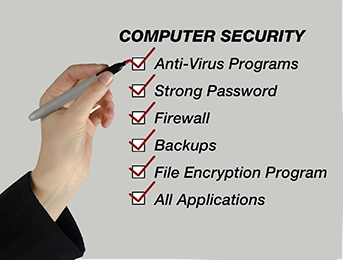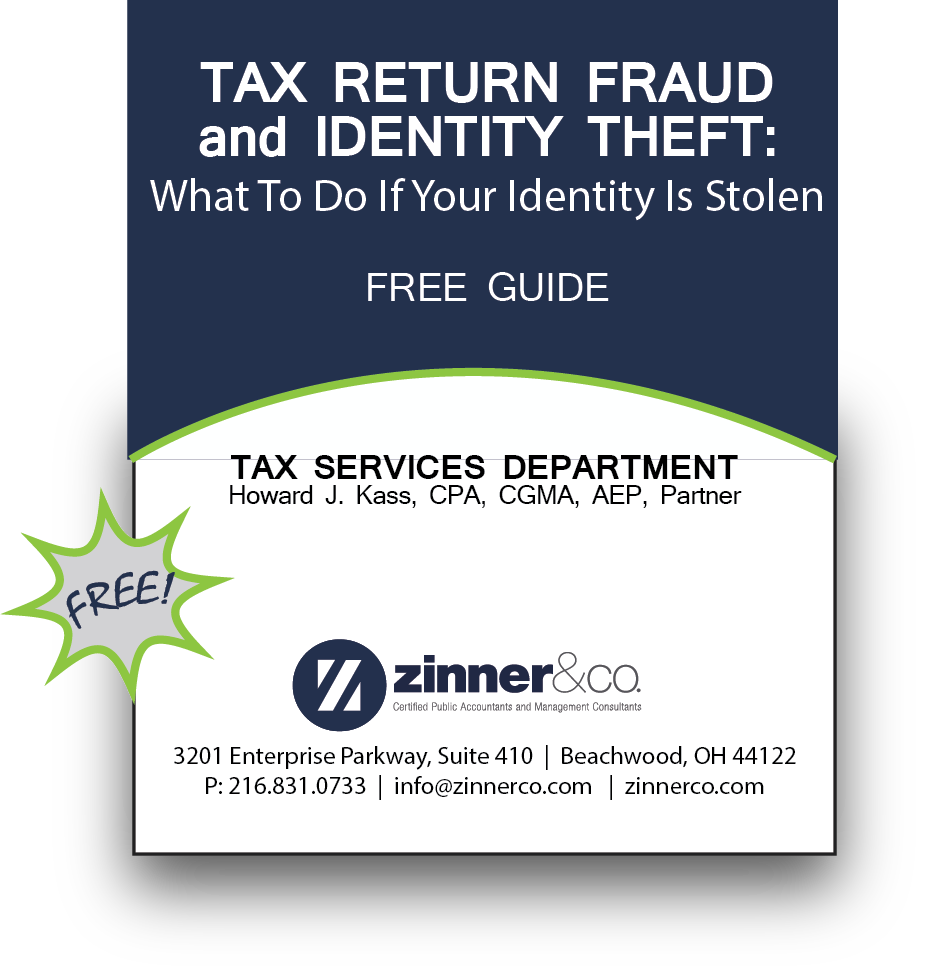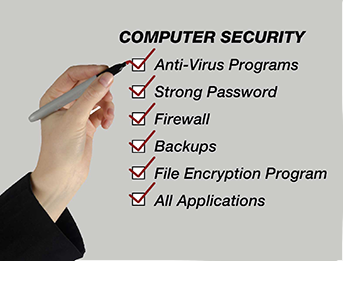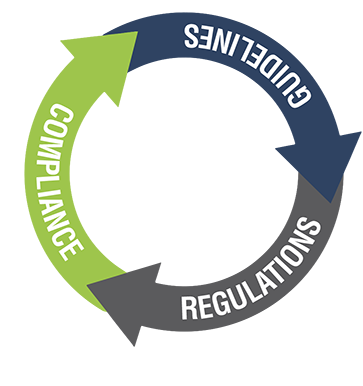With summer vacation season almost upon us, people’s thoughts often turn to travel, and we thought it would be a good time to review the rules for deducting the costs of a business trip where you also take a vacation ("mixing business with pleasure"). These costs may be deductible, but are also subject to limitations. We will discuss these limitations below.
Zinner & Co. has held steady to many founding principles. The integrity of the firm is supported by a long-held belief to not only to show community support through fundraising events and company sponsorships, but also from a boots-on-the-ground approach.
What I’m Reading This Summer – Passive Activity Losses and the Material Participation Tests
Brett W. Neate, CPA, MTax tax services , Brett W. Neate , Taxes - IndividualIn my youth, I was fascinated by all things weird and wonderful. The natural wonders of the world, such as the Grand Canyon or Aurora Borealis, were impressive for their scale and beauty. However, the man-made wonders were impressive not only for their scale and beauty but also for the fact that they sprung from the minds of men and made real through years of hard work.
I was in awe and fueled my interests through the joy of reading. I always held a love for books and looked forward to trips to the local library, so I could find an armful of books that I could read and fill my book log during the annual summer reading program.
The Department of Labor Overtime Rules - Simply Stated
Zinner & Co. Tax Team Ohio business owners , Taxes - Corporate & BusinessThe Department of Labor has finalized new overtime rules under the Fair Labor Standards Act, ending months of speculation about how the proposal, which was introduced last July, would affect employers.
What We're Reading: What’s annoying employers most about the ACA now?
Zinner & Co. Affordable Care Act , Firm newsRecently, employers were asked which part of the ACA they most want to see changed. And in what’s likely to be a surprise to many, the No. 1 answer wasn’t the employer mandate.
You have read security warnings advising you to stay away from particular websites and of course, not to click on the link to become the beneficiary of a far-away royal.
You know not to download free apps, to stay clear of file sharing, and are current with anti-virus and firewall protection. Rightfully and confidently, you feel good about the protective steps you have taken to reduce your risk of identity theft. Then - WHAM! Along comes a hacker who successfully infiltrates some of the largest technology companies in the world and as a result, steals your email password.
Related read: Classic Hackers: What War Games taught us about technology in the workplace
I recently read the following news on Forbes.com:
New Survey: Half of Americans Expect Identity Theft to Cause Them a Financial Loss in the Next Year; Majority of Investment Frauds Go Unreported
Zinner & Co. identity theftAs management advisors, we strive to keep our readers informed, educated and in-step with the latest news surrounding business and personal cyber security. Knowlege is power -- and we are fortunate to receive many pieces of communication each day from credible agencies that help us guide you.
Today, we share insight from the AICPA’s National CPA Financial Literacy Commission's latest news.
ax-Related Identity Theft
First of a three part series
Classic Hackers: What War Games Taught us About Technology in the Workplace
Zinner & Co. fraud , security , technology , cybersecurityClassic Hackers: What War Games Taught us About Technology in the Workplace
About Us

Since 1938, Zinner has counseled individuals and businesses from start-up to succession. At Zinner, we strive to ensure we understand your business and recognize threats that could impact your financial situation.
Recent Blog Posts
Categories
- 1031 Exchange (2)
- 401k (2)
- 529 plan (4)
- ABLE Act (1)
- account systems (3)
- accounting (8)
- Affordable Care Act (8)
- alimony (2)
- American Rescue Plan Act (1)
- Ask the Expert (5)
- Audit and Assurance Department (13)
- audits (8)
- Bank Secrecy Act (1)
- banks (1)
- Barbara Theofilos (6)
- Beneficial Ownership Information (1)
- Bitcoin (1)
- block chain (2)
- BOI (3)
- Bookkeeping (1)
- Brett W. Neate (28)
- budgets (1)
- Bureau of Worker's Compensation (12)
- Business - Management, Issues & Concerns (50)
- business income deduction (3)
- business succession (7)
- business travel expense (3)
- business valuation (5)
- capital gains (2)
- careers (7)
- cash flow (2)
- Child Tax Credit (2)
- Chris Valponi (8)
- City of Cleveland (1)
- Cleveland COVID-19 Rapid Response Fund (1)
- Cleveland Rape Crisis Center (2)
- college (3)
- Community (24)
- Compliance (1)
- Coronavirus (24)
- Corporate Transparency Act (1)
- COVID-19 (30)
- Credit card fraud (5)
- credit reporting (2)
- cryptocurrency (2)
- CTA (2)
- cybersecurity (16)
- dead (1)
- DeAnna Alger (6)
- death (2)
- debt (4)
- deductions (14)
- Deferring Tax Payments (4)
- Department of Job and Family Services (2)
- depreciation (1)
- Digital Tax Payment (1)
- divorce (4)
- DOMA (3)
- Economic Impact Payments (2)
- Economic Injury Disaster Loan (4)
- education (8)
- EIDL (1)
- electronic filing (4)
- Electronic Tax Payments (2)
- Emergency Working Capital Program (1)
- employee benefit plan auditor (1)
- Employee Leave (2)
- Employee or Independent Contractor (6)
- Employee Retention Credit (3)
- employment (2)
- ERC (3)
- Eric James (8)
- Estates, Gifts & Trusts (48)
- expenses (5)
- Families First Coronavirus Response Act (2)
- FASB (1)
- FBAR (1)
- FDIC coverage (1)
- Federal Assistance (4)
- filing (3)
- financial planning (8)
- Financial Planning - College (9)
- financing (3)
- Firm news (119)
- first responders (1)
- FMLA (1)
- foreign assets (3)
- fraud (38)
- FSA (1)
- fundraising (9)
- Gabe Adler (1)
- gift tax (5)
- HDHP (2)
- health care (3)
- home (2)
- home office (1)
- Howard Kass (2)
- HRA (1)
- HSA (5)
- identity theft (32)
- income (1)
- income tax (57)
- independent contractor (1)
- Inflation (1)
- Insurance (7)
- internal control (4)
- international (2)
- Intuit (1)
- investments (4)
- IRS (88)
- jobs (5)
- John Husted (1)
- K-1 (1)
- Laura Haines (3)
- Layoff (2)
- Layoffs (1)
- leadership (3)
- lease accounting standards (1)
- life insurance (1)
- LLC (3)
- Loans (2)
- longevity income annuities (1)
- Lorenzo's Dog Training (1)
- Magic of Lights (1)
- management advisory (3)
- manufacturing (2)
- Matt Szydlowski (3)
- medical (7)
- Medicare (2)
- mergers and acquisitions (1)
- Mike DeWine (2)
- Millennial Concepts (2)
- minimum wage (1)
- NAIOP (1)
- National Defense Act (1)
- non-profit reporting (10)
- non-profits (38)
- not-for-profit (26)
- ODJFS (1)
- office (1)
- ohio (13)
- Ohio business owners (18)
- Ohio Department of Jobs and Family Services (3)
- Ohio Department of Taxation (3)
- Ohio Incumbent Workforce Training Voucher Program (1)
- Online Tax Payment (3)
- Operations (2)
- OPERS (1)
- owners of foreign entities (1)
- partnerships (5)
- passwords (1)
- Paycheck Protection Program (9)
- payroll (8)
- penalties (3)
- pension (2)
- personal finance (2)
- planning (4)
- ppp (7)
- Productivity (5)
- Qualified Business Income (1)
- quickbooks (10)
- real estate (14)
- record retention (2)
- records (2)
- Reporting (1)
- Republican National Convention (1)
- Retirement Planning & IRAs (53)
- Richard Huszai, CPA (5)
- RITA (1)
- Robin Baum (6)
- RRF (1)
- S Corporation (1)
- SALT (8)
- SBA (8)
- scams (12)
- SECURE 2.0 Act (1)
- security (6)
- SharedWorks (1)
- Shutdown (3)
- Silver Linings (9)
- simplified employee pension (1)
- Small Business (5)
- SMB (12)
- Social Media (1)
- social security (4)
- Speaker Series (2)
- spouse (1)
- start ups (8)
- Stay at Home Order (3)
- Steven Mnuchin (1)
- Sue Krantz (6)
- SVOG (1)
- tangible property (1)
- tax (27)
- tax avoidance (12)
- Tax Credit (7)
- Tax Cuts and Jobs Act of 2017 (31)
- Tax Exempt (1)
- Tax Holiday (1)
- Tax Interns (2)
- tax services (28)
- taxes (45)
- Taxes - Corporate & Business (104)
- Taxes - Individual (117)
- Taxes - Planning, Rules and Returns (188)
- TechCred (1)
- technology (7)
- The CARES Act (6)
- The SOURCE (1)
- tiag (3)
- transaction advisory (2)
- Treasury Department (5)
- tuition (3)
- U.S. Department of the Treasury (1)
- U.S. Small Business Administration (6)
- Unclaimed Funds (1)
- Unemployment Benefits (4)
- withdrawls (2)
- withholding (6)
- Workers Comp Billing Changes (1)
- Zinner & Co. (32)
- Zinner News (30)












